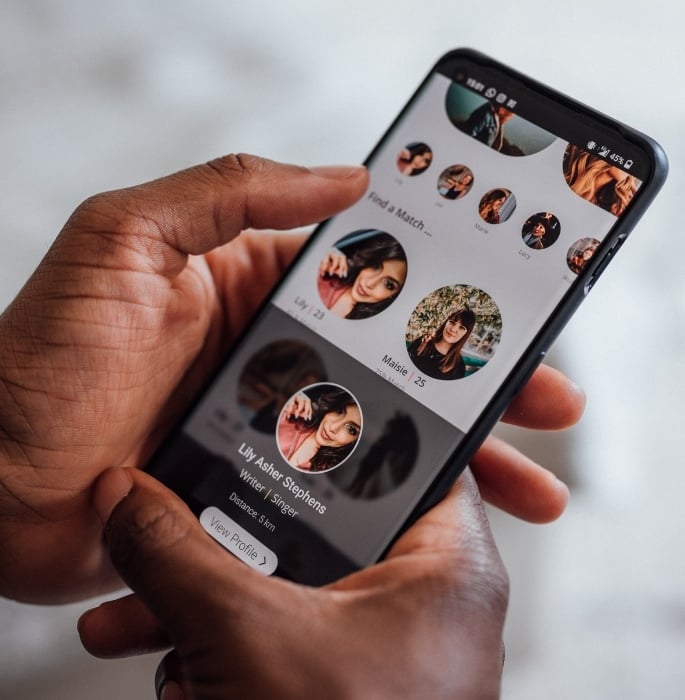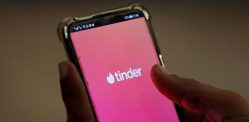Users often feel disposable or undervalued.
Dating apps were once seen as a modern solution to finding love, but for many, they’ve become an exhausting emotional cycle.
The excitement of swiping and matching quickly fades into fatigue, frustration, and self-doubt.
Many users describe feeling emotionally drained and even hopeless after extended use, suggesting a deeper psychological impact behind the screens.
The constant loop of anticipation, disappointment, and fleeting validation can create what experts now call “dating app burnout.”
For South Asians navigating both cultural expectations and modern dating pressures, this fatigue can feel especially overwhelming.
Understanding why this happens and how to manage it can help restore balance and clarity in your romantic life.
The Psychological Toll of Dating Apps
 Dating apps are increasingly associated with higher rates of anxiety, depression, and low self-esteem compared to those who date offline.
Dating apps are increasingly associated with higher rates of anxiety, depression, and low self-esteem compared to those who date offline.
The repetitive nature of rejection, ghosting, and superficial exchanges can deeply affect self-worth and emotional stability.
Many users find themselves constantly comparing their experiences or appearance to the polished, curated profiles of others.
This comparison can amplify feelings of inadequacy and self-doubt, especially when connections fail to progress beyond short-lived chats.
The fear of missing out, or FOMO, also plays a powerful role, as seeing others’ seemingly successful romantic lives can intensify loneliness.
Over time, this emotional weight can make dating feel less like an opportunity and more like a psychological burden.
Dopamine Cycles and Reward Addiction
 Dating apps are intentionally designed to mimic reward systems found in gambling, creating addictive dopamine-driven feedback loops.
Dating apps are intentionally designed to mimic reward systems found in gambling, creating addictive dopamine-driven feedback loops.
Each match, message, or notification provides a quick rush of excitement and validation, fuelling a desire for more.
Positive interactions momentarily lift mood and confidence, but being ignored or rejected can trigger emotional crashes that feel disproportionately painful.
These highs and lows can become habitual, leading to compulsive checking and endless swiping.
For some, this constant neurochemical fluctuation disrupts emotional stability and contributes to irritability, anxiety, or detachment.
The result is a dependency on digital affirmation rather than authentic connection, which ultimately undermines long-term emotional health.
The Impact of Constant Availability
 The endless stream of potential matches creates what psychologists call the “paradox of choice,” where too many options actually make satisfaction harder to achieve.
The endless stream of potential matches creates what psychologists call the “paradox of choice,” where too many options actually make satisfaction harder to achieve.
Having constant access to new profiles can cause unrealistic expectations and chronic disappointment when reality doesn’t match the fantasy.
Being both the judge and the judged in this system heightens social pressure and emotional fatigue.
With minimal accountability for poor behaviour, such as ghosting or breadcrumbing, users often feel disposable or undervalued.
Over time, this erodes emotional resilience and trust, making genuine intimacy feel increasingly out of reach.
The illusion of abundance masks a scarcity of meaningful connection, leaving users more isolated than fulfilled.
What to Do About Dating App Burnout
 Managing dating app burnout begins with setting clear boundaries for how and when you use these platforms.
Managing dating app burnout begins with setting clear boundaries for how and when you use these platforms.
Limiting screen time and swiping sessions helps prevent emotional overload and restores a sense of control.
Focus on quality over quantity by nurturing genuine conversations and moving them offline when possible, where real chemistry can develop.
Taking breaks to journal, practise mindfulness, or engage in creative hobbies can strengthen self-awareness and rebuild self-esteem.
Therapy or open conversations with trusted friends can also help you process rejection and reshape expectations around dating.
Remember, the abundance of choice is often an illusion.
Real connection thrives on presence, patience, and authenticity, not endless scrolling.
Feeling burnt out from dating apps is not a sign of weakness but a natural response to a system engineered for engagement rather than emotional fulfilment.
Recognising the psychological toll of constant availability, rejection, and dopamine-driven highs is the first step toward healing.
By setting boundaries, prioritising self-care, and re-engaging with the offline world, it becomes easier to rediscover what genuine connection feels like.
For South Asians balancing cultural expectations with digital modernity, this reset can be particularly empowering.
Taking intentional breaks from the apps can transform dating from a draining routine into a more grounded, meaningful experience rooted in self-respect and emotional clarity.






























































